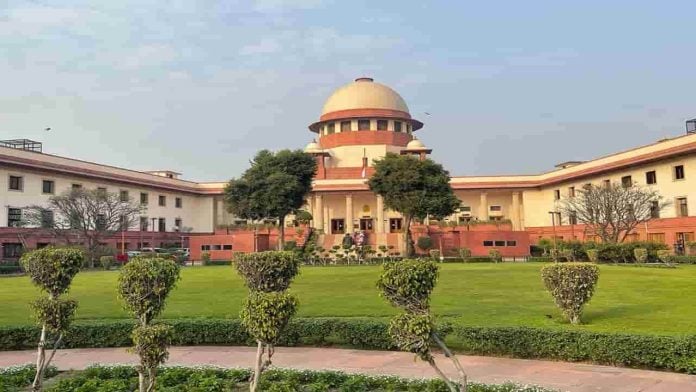The Supreme Court has decided to conduct hearing on the petitions accusing the Central government of spying on a number of politicians, activists and journalists with the help of Israel spyware Pegasus, on February 25.
The matter came up for hearing before a Bench led by Chief Justice (CJI) N.V. Ramana.
The Apex Court took the decision after Solicitor General (SG) Tushar Mehta sought accommodation in view of another case slated to be heard tomorrow, in which he is appearing.
A three-member expert committee appointed by the Supreme Court to probe into the Pegasus surveillance scandal had submitted its interim report in the matter, which the top court was set to consider on February 23.
SG Mehta, however, requested the CJI that the matter be posted for Friday since he will be arguing in another case relating to validity of provisions of the Prevention of Money Laundering Act (PMLA) on February 23.
The CJI agreed.
“Yes, okay. Inform others too,” the CJI said.
On October 27 last year, the Supreme Court had appointed an expert committee headed by former Supreme Court judge, Justice RV Raveendran and assisted by Alok Joshi (former IPS Officer) and Dr. Sundeep Oberoi, Chairman, Sub Committee in (International Organisation of Standardisation/International Electro-Technical Commission/Joint Technical Committee).
In January this year, the expert committee constituted by the apex court had issued a public notice seeking details from citizens who have a reasonable cause to suspect that their devices were compromised by the Pegasus spyware.
So far, at least 13 people, including journalists N Ram, Siddharth Varadarajan and Paranjoy Guha Thakurta have deposed before the committee.
Recently, in early February, this year, a Special Court under the National Investigation Agency (NIA) Act allowed the investigating agency to submit seized mobile phones of seven accused from the Bhima Koregaon case of 2018 to the Supreme Court appointed technical committee probing the Pegasus spyware scandal.
Israel-based spyware firm NSO is best known for its Pegasus spyware, which it claims is sold only to “vetted governments” and not to private entities, though the company does not reveal which governments it sells the controversial product to.
Also Read: Supreme Court denounces indefinite delay in hearing pre-arrest bail plea by High Courts
An international consortium of news outlets, including the Indian news portal The Wire, had recently released a series of reports indicating that the said the software may have been used to infect the mobile devices of several persons including Indian journalists, activists, lawyers, officials, a former Supreme Court judge and others.
The reports had referred to a list of phone numbers that were selected as potential targets. Upon analysis by a team from Amnesty International, some of these numbers were found to have traces of a successful Pegasus infection, while some showed attempted infection, the reports had said.
A slew of petitions then came to be filed before the top court seeking probe into the allegations.
The petitioners included Advocate ML Sharma, Rajya Sabha MP John Brittas, Director of Hindu Group of publications N Ram and founder of Asianet Sashi Kumar, Editors Guild of India, journalists Rupesh Kumar Singh, Ipsa Shatakshi, Paranjoy Guha Thakurta, SNM Abidi and Prem Shankar Jha.
In its judgment delivered on October 27 last year, the top court had berated the Central government for raising the argument of national security to defend its case, stating that it cannot be an omnibus argument to gain a free pass every time the Court exercises judicial review.
“State cannot get free pass every time by raising national security concerns. no omnibus prohibition can be called against judicial review. Centre should have justified its stand here and not render the court a mute spectator,” the top court said.
Also Read: Supreme Court agrees to hear plea seeking alternative to offline board exams on February 23
The Central government had earlier refused to file an official affidavit in the matter citing concerns of national security.
“There has been no specific denial by Centre (about use of Pegasus). Thus we have no option but to accept the submissions of petitioner prima facie and thus we appoint an expert committee whose function will be overseen by the Supreme Court,”
-the top court ordered.
The Court also said that while it is the era of information technology which is crucial for our daily lives, it is equally important to safeguard the privacy of citizens.
While there are restrictions on the right to privacy, the same are bound by Constitutional safeguards. Restrictions on privacy can be imposed only for prevention of terrorist activities in the interest of national security, the Court had held while constituting the expert committee.


